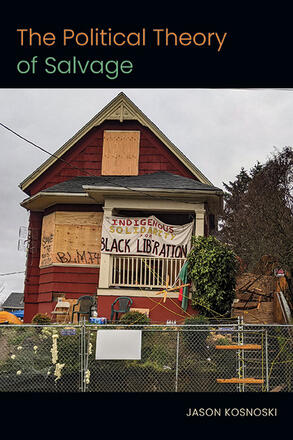
The Political Theory of Salvage
Alternative formats available from:
Explores the political and theoretical significance of the use of salvaging discarded materials by social movements during their protest activities.
Description
The use of what others have thrown away by those who squat in abandoned buildings, build neighborhoods on seeming wasteland, and occupy public spaces has been a fundamental factor in the survival of social movements during their protest activities. In The Political Theory of Salvage, Jason Kosnoski explores the political and theoretical significance of the use of salvaging discarded materials during these protests. Not only does salvage provide raw material for maintaining encampments and structures but, more importantly, this activity also encourages anti-capitalist and radical democratic consciousness. Through the use of theorists such as John Dewey, Giles Deleuze, Lauren Berlant, Henri Lefebvre, Michael Hardt, and Antonio Negri, Kosnoski suggests new possibilities for both integrating salvage more widely into left political practice and rethinking organizational questions that have vexed contemporary anti-capitalist movements.
Jason Kosnoski is Associate Professor of Political Science at the University of Michigan, Flint. He is the author of John Dewey and the Habits of Ethical Life: The Aesthetics of Political Organizing in a Liquid World.
Reviews
"Salvage is a survival tactic through which people in precarious situations forage resources amid the detritus of capitalism. But, as Jason Kosnoski shows in this provocative book, it is also a strategy for building worlds and sustaining movements that point beyond the broken horizons of the present. By paying close attention to the affective patterns, perceptual habits, practical rhythms, and forms of spatial organization that enable and are enabled by salvage, Kosnoski offers a fresh response to some familiar dilemmas of Left theory and practice, guided by the concrete experiences and insights of people for whom the stakes of those dilemmas are more than academic. This is an unusual and exciting work of political theory, which will inspire and energize scholars across the humanities." — Patchen Markell, author of Bound by Recognition